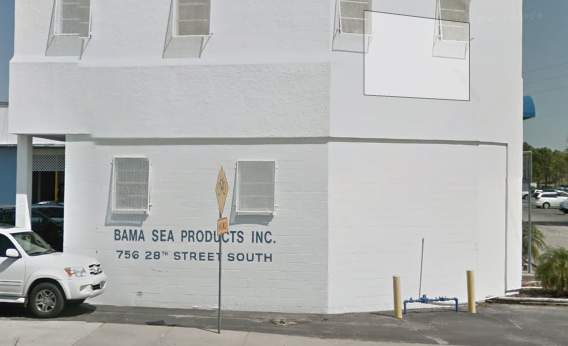A colleague sent me this amazing story by Lane deGregory in The Tampa Bay Times about Newton Murray, a 99-year-old man who’s worked for decades at Bama Sea Products as a custodian for minimum wage and has never asked for a raise.* In addition to doing not-particularly-lucrative work that’s become physically arduous at his age, Murray has a very long and not-so-convenient bus commute to get to work in the first place. In other words, he’s been putting a lot of time into this job and not getting very much in exchange. The guy’s toiling away, and it damn sure seems like he deserves more money and a better standard of living.
Conversely, as Michael Stephens—the son of Bama’s owner and the company lawyer—explains, even at this low wage it doesn’t really make sense to pay an old man to sweep up:
“A couple of years ago, his supervisor came to my dad and said he was really worried about Mr. Newton. My dad agreed: We have to let him go so he doesn’t get hurt. ‘Okay,’ said the supervisor. ‘When are you going to tell him?’ But my dad couldn’t tell him. So it stopped there.”
It takes Mr. Newton eight hours to clear both parking lots and the warehouse, if you include bathroom breaks and naps.
“We could probably get a young guy with a leaf blower to do his job in an hour,” says the lawyer. “But this place just wouldn’t be the same without Mr. Newton.”
Now we get to the part where the economics junkie in me is crying out to observe that there’s a win-win deal here. Bama could easily lay Murray off, replace him with a young guy with a leaf blower, and then give 90 percent of what they save to Newton as a pension. That’d be a little extra money in the pocket of the hypothetical young guy, some extra profit for Bama, and Murray would be much better off free of the obligation to work. Heck, if he enjoys sweeping parking lots, he can go do some sweeping on an amateur basis someplace that’s more conveniently located and save on bus fare.
But of course that entirely misses the point. What Murray likes is not custodial work but the routine and the sense that he’s doing something valuable:
[Murray] says he keeps going because the people at Bama depend on him. “I cannot let them down. They need me.”
Conversely, Murray’s continued presence on the staff makes other members of the staff feel better about working there:
“He’s just an amazing, quiet, old man with an unbelievable attitude,” says Bob Joseph, who does Bama’s purchasing.
“He cares about everyone around him but doesn’t really share much of himself,” says Brian Jackson, his supervisor.
What does maintenance man Karl Holycross see when he looks at Mr. Newton? Job security.
“If they don’t let him go, I have nothing to worry about.”
Last but by no means least, while Bama’s owners and managers presumably enjoy money like any sensible ownership/management team, they’re not actually trying to maximize profits. Money is great, but part of what’s appealing about owning and managing a family-controlled business is precisely the opportunity to control the business and do what you want with it. The ability to pay a guy minimum wage for decades and come away from that feeling like you’re the good guy in the story is every bit as much priceless as the ability to wake up every morning and feel like your work is vital and necessary. Imagine if Bama was suddenly taken over by a private equity firm determined to clear out the waste and rationalize operations. You’d cut out lots of real hedonic value associated with the current relationship. And the breach of trust involved would destroy some real economic value internal to the firm.
* Update: The name of the story’s author has been added.
